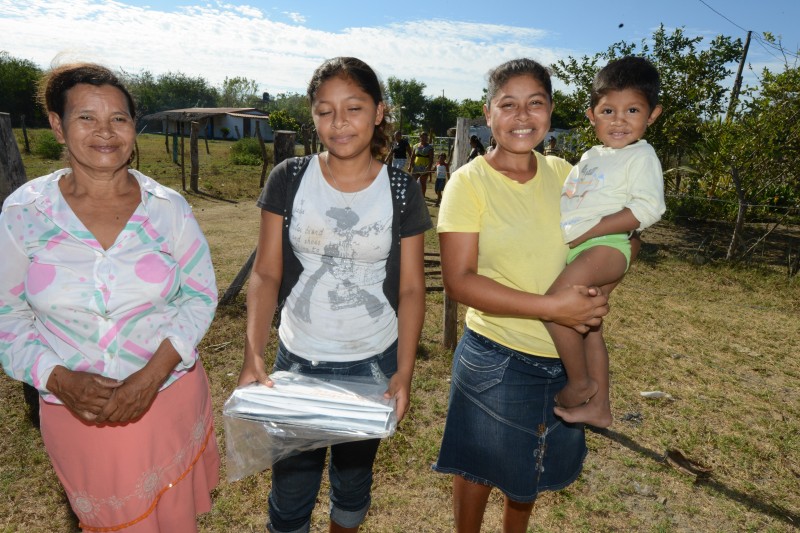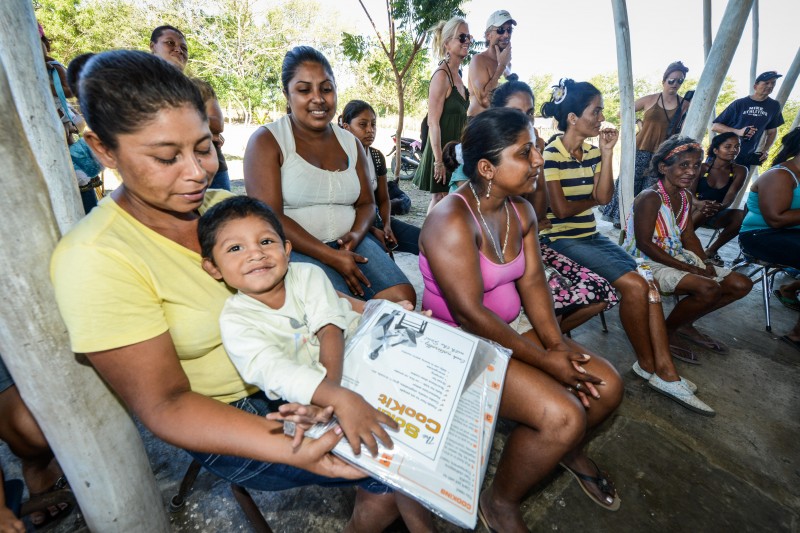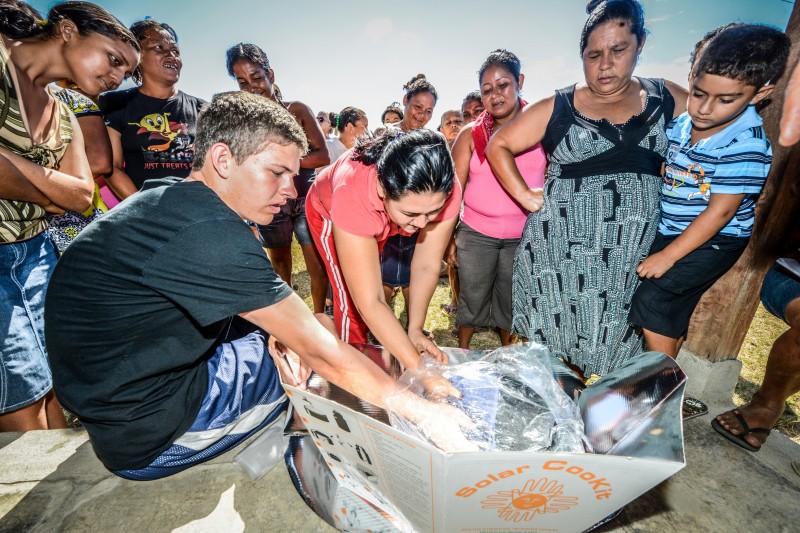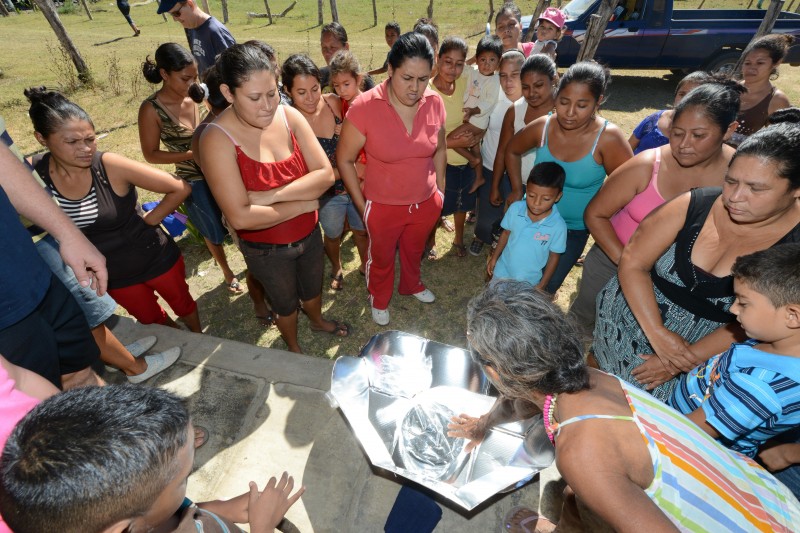We introduced solar cooking to the village of Jiquillo, Nicaragua and donated 100 cookers to the community.
Here are some photos of our workshop in the community. This is such a new idea to them and so very valuable!
Solar cooking is the simplest, safest, most convenient way to cook food without consuming fuels or heating up the kitchen. Many people choose to solar cook for these reasons. But for hundreds of millions of people around the world who cook over fires fueled by wood or dung, and who walk for miles to collect wood or spend much of their meager incomes on fuel, solar cooking is more than awomen carrying wood choice — it is a blessing. For millions of people who lack access to safe drinking water and become sick or die each year from preventable waterborne illnesses, solar water pasteurization is a life-saving skill. There are numerous reasons to cook the natural way — with the sun.
Benefits to:
households
health professionals
businesses
governments
humanitarian, development and relief organizations
environmental programs
Benefits to households
HEALTH AND NUTRITION
Moderate cooking temperatures in simple solar cookers help preserve nutrients.
Those who otherwise could not afford the fuel to do so can cook nutritious foods — such as legumes and many whole grains — that require hours of cooking.
At times many families must trade scarce food for cooking fuel. Solar cooking helps them to keep more food and improve their nutrition.smoky cooking fire
Smoky cooking fires irritate lungs and eyes and can cause diseases. Solar cookers are smoke-free.
Cooking fires are dangerous, especially for children, and can readily get out of control — causing damage to buildings, gardens, etc. Solar cookers are fire-free.
Millions of women routinely walk for miles to collect fuel wood for cooking. Burdensome fuel-gathering trips can cause injuries, and expose women to danger from animals and criminals. Solar cooking reduces these risks and burdens, and frees time for other activities.
With good sunlight, solar cookers can be used to cook food or pasteurize water during emergencies when other fuels and power sources may not be available.
ECONOMICS
Many poverty-stricken families worldwide spend 25% or more of their income on cooking fuel. Sunlight — solar cooker “fuel” — is free and abundant. Money saved can be used for food, education, health care, etc.
Solar cooker businesses can provide extra income. Opportunities include cooker manufacturing, sales and repair, as well as solar food businesses like restaurants and bakeries.
CONVENIENCE
At moderate solar cooking temperatures food doesn’t need to be stirred and won’t burn — food can simply be placed in a solar cooker and left to cook, unattended, for several hours while other activities are pursued. In the right circumstances it is possible to put a solar cooker out in the morning and return home in the late afternoon to a hot meal ready to eat.
Pots used for solar cooking are easy to clean — a fact especially valuable for women who must walk many kilometers to collect water.
Many solar cookers are portable, allowing for solar cooking at work sites or while pursuing outdoor activities like picnics, trekking or camping.
OTHER HOUSEHOLD USES FOR SOLAR COOKERS
solar canning
Heat water for household chores.
Preserve (“can”) tomatoes and fruits.
Sanitize dishes and utensils.
Kill insects in grains and other dry food staples.
… and many more!

ˆ
Benefits to health professionals
Many solar cookers can be used to disinfect dry medical supplies such as medical instruments, bandages and other cloth materials, as well as to heat compresses.
Indoor smoke from cooking fires leads to childhood pneumonia, responsible for over four million deaths per year. Solar cookers are smoke-free.
Preventable waterborne diseases are responsible for 80% of all illnesses and deaths in the developing world. Solar cookers can be used at the household level to pasteurize water and milk, making them safe to drink. A Water Pasteurization Indicator (WAPI) can be used with a solar cooker (or traditional cooking apparatus) to determine whether water has been sufficiently heated to be safe to drink.
Solar Cooking Info :http://www.solarcookers.org/basics/why.html








